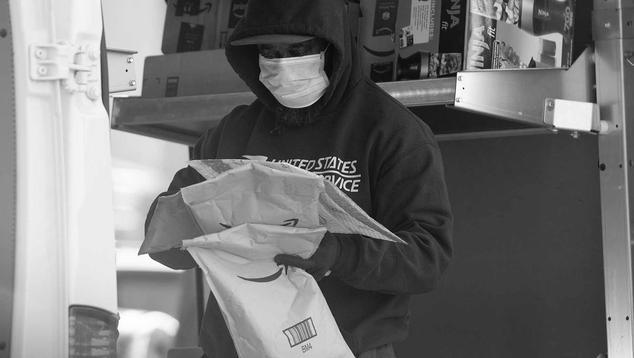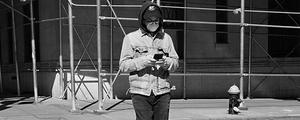The U.S. is grappling with the complex tension between efforts to contain COVID-19 on the one hand and efforts to rejuvenate the nation's economy on the other. There is not much argument about the ultimate importance of either of these goals. The tension arises from competing perspectives on the relative priority each should receive.
Public leaders are in the position of attempting to assess scientific and economic data and making complicated projections about the future. Leaders are trepidatious about loosening mandates in fear that the public will misinterpret or exploit the relaxed standards and move too quickly. But leaders also run the risk of the public beginning to ignore the mandates if they believe those mandates are misguided or unjustified. It is a precarious tightrope. Several states have begun the process of reopening their businesses this week, but most other states are still in the planning stages of deciding when and exactly how they will begin to loosen virus-related restrictions.
The average American is unequipped to make scientific judgments on virus-related matters. Americans are better able to make judgments on the financial and economic impact of the shutdowns. But regardless of the underlying source or accuracy of their beliefs, public opinion on these matters is critically important. Americans' definition of the situation defines the reality of how they react to it. Social distancing mandates have enjoyed remarkable compliance to date, but they are essentially unenforceable and rely on the people's acceptance of the premise that they are warranted and worthwhile.
Underlying Concerns About Virus Risks and Financial Risks
The direct impact of the virus (that is, impact on health) remains starkly evident in public opinion data. Polls asking about "worry" and "concern" vary in their wording (worry about spread, concern about catching the virus, worry about getting infected, etc.), but Gallup data show that over half of Americans are very or somewhat worried that they'll get the coronavirus; some other polls show higher levels of worry.
There is evidence that public worry has leveled off or is even beginning to moderate. A Gallup analysis of trend data collected through April 12 concluded: "Americans Less Pessimistic About COVID-19 Situation," and data updated since that article was published show optimism is continuing to increase. As many Americans now say the coronavirus situation in the U.S. is getting better as say it is getting worse. A trend compilation by FiveThirtyEight also shows a definite drop in the percentage of Americans "very" concerned about getting infected. And new Gallup data show that Americans are modestly less likely to worry about hospital capacity than they were the prior week.
My colleague Jeff Jones' recent analysis of Americans' views on the pandemic's economic and personal financial toll finds that Americans have negative expectations for what's to come. The percentage saying their financial situation is getting worse has increased to 50%, the highest in Gallup's trend by one point.
Americans' assessment of their current financial situation is down, although not yet dramatically so. The percentage rating their personal financial situation as excellent or good is at 49%, compared with 56% a year ago. While other Gallup data show that a majority of Americans (55%) say they can continue following social distancing practices without significant financial hardship for "as long as is necessary," 8% say they're already experiencing significant financial hardship, and another 14% say they will within a few more weeks.
A new Washington Post-University of Maryland poll shows that half of Americans say the virus situation has caused their household some financial hardship.
Looking ahead at the next 12 months, a quarter of U.S. workers now say it's very or fairly likely that they will lose their job, the highest Gallup has ever measured -- even higher than it was after the Great Recession. The number of working Americans who report having been temporarily or permanently laid off is still low, and not much has changed since the end of March. But significant percentages of workers report that their companies have instituted hiring freezes and are cutting hours or shifts.
We have seen an expected -- and substantial -- negative shift in Americans' views of the national economy. Americans have gone from an ebullient view of economic matters just a few months ago to a sharply pessimistic view. The number of Americans saying the economy is getting worse has more than doubled since February and is now at its highest level since 2009.
Other Gallup questions have asked separately about "getting the coronavirus" and "experiencing severe financial hardship as a result of the disruption caused by the coronavirus." Gallup's initial report of these data showed that the former evoked a modestly higher level of worry than the latter; more recent updates show a slight narrowing of the gap between the two concerns. As of the week ending April 19, 54% of Americans are worried about getting the virus, and 50% about experiencing severe financial hardship.
These results confirm that Americans continue to have fundamental concerns about the spread of the virus, although those concerns may be abating slightly -- and that Americans have a particularly negative projection about the future impact of the situation on their finances and on their jobs.
Direct Questions Asking About Reopening
Some pollsters have attempted to ask Americans directly about tradeoffs between these two issues -- containing the virus and restarting the economy. These efforts to get respondents to choose between the two courses of action in a single question are complicated because the underlying issues are complicated. The structure and wording of these questions can have a significant bearing on how they are interpreted.
NBC News/Wall Street Journal question from April 13-15, 2020
An NBC News/Wall Street Journal question on loosening restrictions is the most recent example of this type of question. The question begins by asking, "Which worries you more about responding to the coronavirus and restrictions that require most Americans to shelter in place and only leave their homes for essential needs?" and then provides two alternatives to choose from.
The first alternative is "that the United States will move too quickly in loosening restrictions and the virus will continue to spread with more lives being lost." The second alternative is "that the United States will take too long in loosening restrictions and the economic impact will be even worse with more jobs being lost." These two alternatives in part give respondents a choice between saving lives and saving jobs, and, along with a presumption of inertia for the status quo, it is perhaps not surprising that 58% of respondents in the survey choose the first alternative and 32% the second.
This introductory statement assumes people are worried by asking them which of two alternatives "worries them more," not leaving much of an alternative for respondents who a) might want to say they are not worried about either, or b) might want to say they are worried about both. If it were offered, I assume that some unknown percentage of respondents might opt for a middle alternative -- one that says they worry more about the U.S. not doing both things at the same time in a measured way.
Pew question from April 7-12, 2020
Pew Research recently asked a similar question, but one that doesn't attempt to provide justifications for the two alternative courses of action: "Thinking about the decisions by a number of state governments to impose significant restrictions on public activity because of the coronavirus outbreak, is your greater concern that state governments will lift the restrictions too quickly (or) not lift the restrictions quickly enough?"
Like the NBC News/Wall Street Journal question, the Pew Research question confers legitimacy on the restrictions, in this instance by telling respondents that the restrictions are the result of "the decisions by a number of state governments." The question also assumes that respondents have concerns about those decisions. The responses are similar to those from the NBC News/Wall Street Journal poll, with 66% choosing the first alternative and 32% the second.
But again, the lack of a middle alternative is noteworthy. Respondents may not be concerned about either of these alternatives, but rather concerned that there won't be an effort to lift the restrictions while at the same time getting the spread of the virus under control. Pew's subhead summarizing the results -- "Wide concern that states will lift COVID-19 restrictions too quickly" -- may not be as descriptive as would be optimal, given that the question doesn't really measure the "wideness" of concern, but rather a forced choice between two concerns put in front of them.
Gallup question from April 3-5, 2020
A Gallup question about resuming normal activities included a middle alternative: "Once government restrictions on social contact are lifted and businesses and schools start to reopen, how quickly do you think you would return to your normal activities, including interacting with people in public: immediately, wait to see what happens with the spread of the virus before resuming (or) continue to limit your contact with other people and daily activities indefinitely?"
This question structure is somewhat different than the NBC News/Wall Street Journal and the Pew questions, assuming as it does that restrictions have been lifted and then asking about the public's quickness in returning to normal daily life. The two end-point alternatives offered to respondents are pretty extreme -- "immediately" versus "continue indefinitely" -- which makes the middle alternative more attractive, particularly because the wording of the middle option seems prudent and appealing ("wait to see what happens with the spread of the virus before resuming"). Given these choices, seven in 10 Americans choose the middle option.
Gallup question from March 30-April 5, 2020
A separate Gallup question along the same lines gave respondents more choices about returning to normal activities: "If there were no government restrictions and people were able to decide for themselves about being out in public, how soon would you return to your normal day-to-day activities?" At that point, 42% of Americans chose "after the number of new cases declines significantly," while 38% chose "after there are no new cases for a period of time." The remaining small percentages either selected "right now" or "after a coronavirus vaccine is developed."
CBS News question from April 7-9, 2020
A CBS News poll question shows that when given the chance, a large percentage of Americans opt for a middle alternative. The structure of this question is different in form from those above, not asking Americans about their concerns or worries, but about their thinking: "For you, personally, what are you thinking about more these days: the health risks from the coronavirus outbreak, the economic and financial impact from the coronavirus outbreak (or) both equally?"
The responses show that 49% choose the "both equally" option, with 26% choosing the "health risks" option and 19% the "economic and financial impact" option. Obviously, from the people's perspective, the situation is not an either/or choice.
Bottom Line
There are positives and negatives associated with any course of action relating to the coronavirus, as is true of almost all political decisions. Most Americans, I think it is safe to assume, want to prevent deaths from the virus and want a vibrant economy that provides jobs and incomes. Political leaders are in the difficult position of attempting to balance the benefits and risks of advocating actions aimed at both objectives.
An assessment of public opinion, as we have seen, does not provide leaders with a precise mandate on exactly how to proceed. The public clearly (and not surprisingly) supports the concept of saving lives by containing the virus, and if forced to choose between that and economic matters, opts for the former. But it is also clear that Americans are highly worried about the direction of the economy and about their personal finances and job security, underscoring how the choice is not simply one of focusing on one thing at a time. The data show that Americans want their leaders to do what is hardest -- balancing both objectives and moving forward on parallel tracks, addressing the virus and addressing the economy simultaneously.




